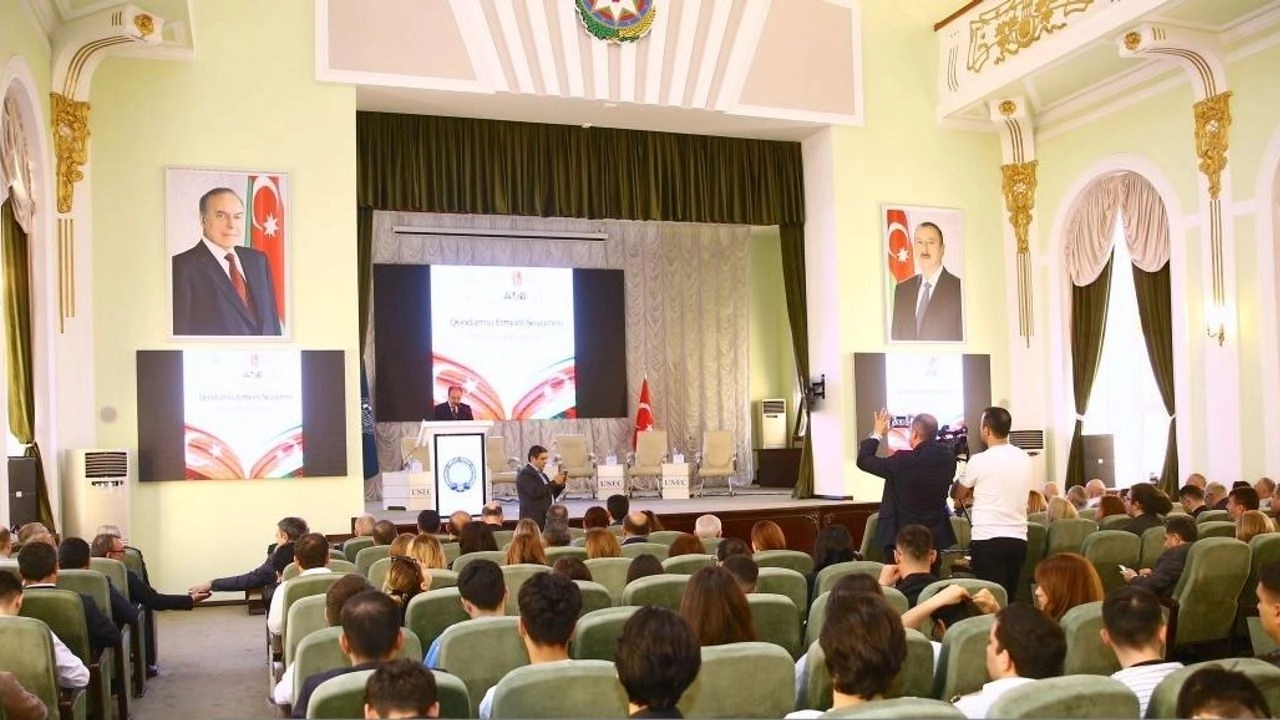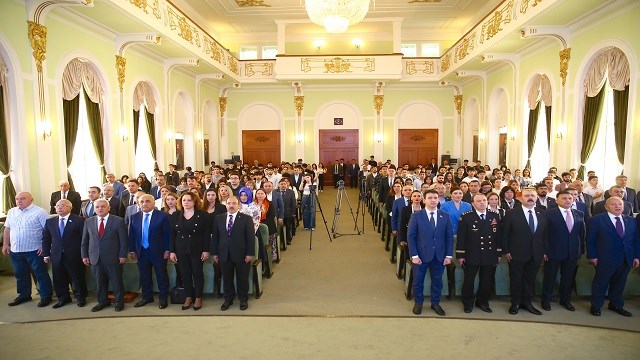
A conference on the topic "The so–called Armenian Genocide: allegations and facts" was held in Baku
A conference on the topic "The so–called Armenian Genocide: allegations and facts" was held in Baku
Turkish Ambassador to Baku Jahit Bagji: "The purpose of the so-called accusations of genocide is to weaken and isolate Turkey, which has become stronger and has become a player at the global and regional level in all respects."
An international conference on "The so-called Armenian Genocide: Allegations and facts" was held in Baku, the capital of Azerbaijan.
Turkish Ambassador to Baku Jahit Bagji, representative of the Turkish Republic of Northern Cyprus (TRNC) in Baku Ufuk Turganer, UNEC leadership, scientists and students took part in the opening of the conference, organized jointly by the Azerbaijan University of Economics (UNEC) and Hacettepe University.
At the conference, organized with the support of the Azerbaijani-Turkish Association of Entrepreneurs (ATIB), a minute of silence was held in memory of martyrs and statesmen, and the national anthems of Independence and Azerbaijan were played.
In his speech, Ambassador Bagji spoke about the events that took place in the last period of the Ottoman Empire and the separatist movements that acted as a front against the state when provoked by Western countries.
Stating that the Armenian separatist structures pose a serious threat to the security of the Ottoman Empire, Bagji stated that the separatist activities, terrorist acts and mass killings of these structures have brought this threat to an uncontrollable point.
Bagji stressed that during the First World War, Armenian gangs cut supply and communication lines, almost hitting the Ottoman army from behind, and that the state took some precautions in this situation, and said:
"The Armenians were sent to lands in Syria and Mesopotamia belonging to the Ottoman Empire, they were not deported. Describing the events and deportations to which Armenians were subjected in the last period of the Ottoman Empire as "genocide" is neither historically nor legally correct."
Recalling that Turkey had proposed the creation of a joint historical commission to investigate the events of 1915, Bagji stressed that Armenia had not reacted positively to this.
Bagji said that Turkey's position based on empathy and dialogue is clear and unambiguous, and that it seeks to dominate the overall narrative based on fair and objective memory, and said:
"Discourses that unilaterally construct the events of 1915, tearing them away from the historical background, have served and continue to serve only the goals of terrorist groups. With the so-called accusations of genocide, the goal is to weaken and isolate Turkey, which has become stronger and has become a global and regional player in all respects. However, we should not forget that the name of the Turkish Republic under the leadership of our President, Mr. Recep Tayyip Erdogan, has become a shadow of its flag and a symbol of peace, hope and trust even beyond our borders."
"Turkish scientists must cooperate to bring the truth to the world,"
UNEC Rector, Professor Adalet Muradov also said that the allegations regarding the events of 1915 should be investigated by historians.
Muradov said: "The events of 1915 are not genocide. Turkey opens its archives, but Armenia does not accept this, because it knows that the results will not be what they want. France, which accuses Turkey of genocide, is also the country that has committed the largest genocides. Turkish scientists must cooperate to bring the truth to the whole world."
The program continued with a panel discussion moderated by the Dean of the Faculty of Turkic World Economy (TÜDIFAK) Azerbaijan State University of Economics Professor Dr. Mehmet Yudzhe, as well as Rector of TOBB University of Economics and Technology Prof. Dr. Yusuf Sarynai, Director of the Institute of Caucasian Studies of the National Academy of Sciences of Azerbaijan, Deputy Professor Dr. Musa Gasimli and Prof. Dr. Solmaz Rustemova Tohidi.
